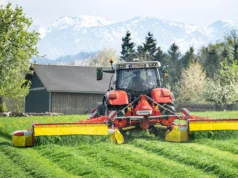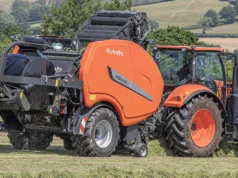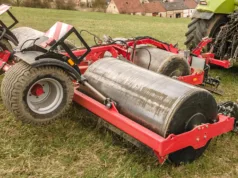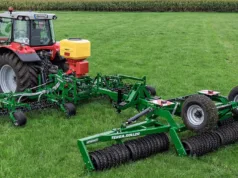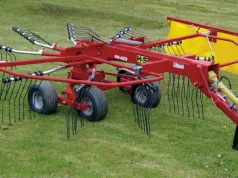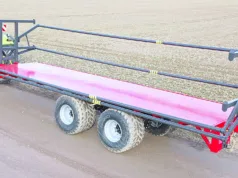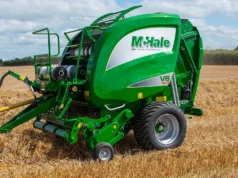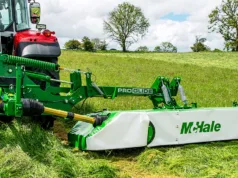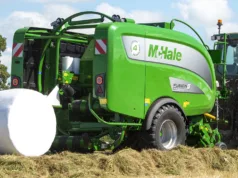Austrian manufacturer Pöttinger has sold one of its Jumbo 10000 self-loading forage wagon in its home country.
Launched in the middle of 2007 with a load capacity of more than 100 cubic metres, previous examples of the giant machine had been sold outside of Austria, with the first going to the Czech Republic.
The Jumbo 10000 has been bought by Nawaro Energie Betrieb, which operates three biomass heating power stations in Lower Austria. The biomass heating power stations located at Altweitra, Rastenfeld and Göpfritz an der Wild, will employ Pöttinger’s flagship Jumbo 10000 to harvest grass used for the generation of energy.
Pöttinger has been working continually on loader wagon developments for more than 40 years. The result is more than 50 different models of loader wagon with individual equipment options to offer each customer an optimum solution. With the Jumbo 10000, the company has taken the Jumbo series to the limit at 12.26m long, 2.5m wide and 4m high.
High performance is of key significance. To ensure that the ensiling process achieves the best quality it is important that a large quantity of forage is handled efficiently, even over extended transport distances. This is of great interest to the biogas sector, where long distances often need to be covered to deliver biomass materials to the plant.
Huge capacity offers an efficient solution, although the wagon then needs to be able to withstand enormous loads. Large tonnages are possible thanks to the high performance of these machines. That is why Pöttinger offers the Jumbo 10000 as standard with a tridem chassis with steered axles and hydro-pneumatic suspension. This chassis is designed for high speed transport and up to 30,000kg overall weight.
Management at the power station company decided in favour of the Pöttinger loader wagon because it represented an increase in efficiency and an improvement to harvesting logistics. Other reasons included the huge volume of dry matter that can be transported at one time and the ability to supply grass to the power stations as biomass material in a form that can be easily processed.


